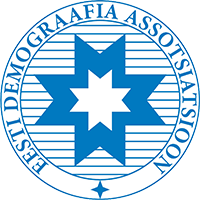Scientific research and related activities of the Institute are carried out in three main themes:
Theme A: Estonian population development in Baltoscandian and European context
The theme integrates research on core demographic processes, with emphasis, considering the scientific potential, on fertility development and reproductive behaviour, interactions between demographic and economic processes, international and internal migration, population ageing and population-related policies. Under the theme, Estonian population development is regarded in a closer Baltoscandian context as well as in broader European perspective. Defined as a problem-focused research, the results are aimed to contribute to societal decision-making process.
Theme B: Historical demography
Historical demography builds on relatively rich sources such as parish registers, land and soul revisions and civil rolls going back to the XVII century, and partly even to XIII century in Estonia. The theme has a long-established record with internationally acknowledged results. Now integrated with core demographic research and supporting the long-term perspective on different population processes, the outcome of research has among others acquired policy-relevant significance. Also, the theme has contributed to methodological advancement of archives in modern context.
Theme C: Programme for population data methodology and national statistics
The theme unites research and methodological activities to secure the consistency and comparability of national census, vital and survey statistics. Although not belonging to main research themes of population institute under well-established conditions, due to societal discontinuity and seriously deficient/low quality population data, the theme has inevitably been of high priority in Estonia. The theme has supported the build-up of national statistical system, including the initiation of national surveys as well as creating required basis for modern population science.

